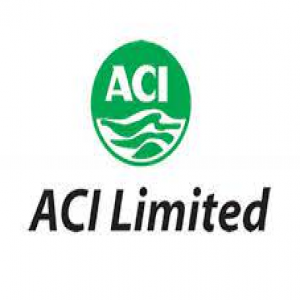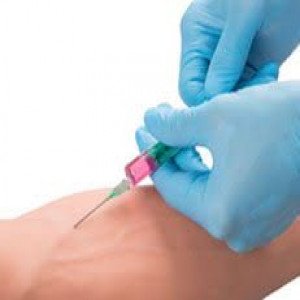 Welcome
Welcome
“May all be happy, may all be healed, may all be at peace and may no one ever suffer."
ACI Limited

Thiopen 1gm / vial

Generic for Diseases
- Epilepsy
- Induction of anesthesia
- Reduction of raised intracranial pressure
Thiopental, a barbiturate, is used for the induction of anesthesia prior to the use of other general anesthetic agents and for induction of anesthesia for short surgical, diagnostic, or therapeutic procedures associated with minimal painful stimuli. Thiopental is an ultrashort-acting depressant of the central nervous system which induces hypnosis and anesthesia, but not analgesia. It produces hypnosis within 30 to 40 seconds of intravenous injection. Recovery after a small dose is rapid, with some somnolence and retrograde amnesia. Repeated intravenous doses lead to prolonged anesthesia because fatty tissues act as a reservoir; they accumulate Pentothal in concentrations 6 to 12 times greater than the plasma concentration, and then release the drug slowly to cause prolonged anesthesia
Thiopental binds at a distinct binding site associated with a Cl- ionopore at the GABAA receptor, increasing the duration of time for which the Cl- ionopore is open. The post-synaptic inhibitory effect of GABA in the thalamus is, therefore, prolonged.
Thiopental 500 mg injection: Each box contains 1 vial of 500 mg Thiopental Sodium for Injection (a sterile mixture of Thiopental Sodium and anhydrous Sodium Carbonate as a buffer) & 1 ampoule of 10 ml Water for Injection.
Thiopental 1 gm injection: Each box contains 1 vial of 1 gm Thiopental Sodium for Injection (a sterile mixture of Thiopental Sodium and anhydrous Sodium Carbonate as a buffer) & 2 ampoules of 10 ml Water for Injection.
Thiopental Sodium for Injection is indicated-
- As the sole anesthetic agent for brief (15 minutes) procedures,
- For induction of anesthesia prior to administration of other anesthetic agents,
- To supplement regional anesthesia,
- To provide hypnosis during balanced anesthesia with other agents for analgesia or muscle relaxation,
- For the control of convulsive states during or following inhalation anesthesia, local anesthesia, or other causes,
- In neurosurgical patients with increased intracranial pressure, if adequate ventilation is provided, and
- For narcoanalysis and narcosynthesis in psychiatric disorders.
Thiopental Injection is administered intravenously normally as a 2.5% w/v solution. On occasions it may be administered as a 5% w/v solution (500 mg in 10 ml). The intravenous injection preparation should be used after reconstitution of the sterile powder with Water for Injections, usually to produce a 2.5% w/v solution.
Premedication: Premedication usually consists of atropine or scopolamine to suppress vagal reflexes and inhibit secretions. In addition, a barbiturate or an opiate is often given. Ideally, the peak effect of these medications should be reached shortly before the time of induction.
Test dose: It is advisable to inject a small "test" dose of 25 mg to 75 mg of Thiopental Sodium for Injection to assess tolerance or unusual sensitivity to Thiopental Sodium for Injection, and pausing to observe patient reaction for at least 60 seconds. If unexpectedly deep anesthesia develops or if respiratory depression occurs, consider these possibilities: (1) the patient may be unusually sensitive to Thiopental Sodium for Injection, (2) the solution may be more concentrated than had been assumed, or (3) the patient may have received too much.
Use in anaesthesia: Normal dosage for the induction of anesthesia is 100 mg to 150 mg injected over 10 to 15 seconds. If necessary, a repeat dose of 100 mg to 150 mg may be given after one minute. No fixed dosage recommendations for the intravenous injection can be given, since the dosage will need to be carefully adjusted according to the patient's response. Factors such as age, sex, and weight of the patient should be taken into consideration. Thiopental Sodium reaches effective concentrations in the brain within 30 seconds and anesthesia is normally produced within one minute of an intravenous dose.
- Adult: 100 mg to 150 mg intravenously over 10 to 15 seconds, normally as a 2.5% w/v solution. A repeat dose of 100 mg to 150 mg may be given after one minute. The intravenous injection should be given slowly and the amount given titrated against the patient's response to minimize the risk of respiratory depression or the possibility of over dosage. The average dose for an adult of 70 kg is roughly 200 mg to 300 mg (8 mls to 12 mls of a 2.5% w/v solution) with a maximum of 500 mg.
- Children: 2 mg/kg to 7 mg/kg bodyweight, intravenously over 10 to 15 seconds, normally as a 2.5% w/v solution. A repeat dose of 2 mg/kg to 7 mg/kg may be given after one minute. The dose is 2 mg/kg to 7 mg/kg based on the patient's response. The dose for children should not exceed 7 mg/kg.
- Elderly: Smaller adult doses are advisable.
Use in convulsive states: 75 mg to 125 mg (3 mls to 5 mls of a 2.5% w/v solution) should be given as soon as possible after the convulsion begins. Further doses may be required to control convulsion following the use of a local anesthetic. Other regimens, such as the use of intravenous or rectal diazepam, may be used to control convulsive states.
Absolute Contraindication:
- Absence of suitable veins for intravenous administration
- Hypersensitivity (allergy) to barbiturates
- Variegate porphyria (South African) or acute intermittent porphyria
- Status asthmaticus
Relative Contraindication:
- Severe cardiovascular disease
- Hypotension or shock
- Conditions in which the hypnotic effect may be prolonged or potentiated, eg, excessive premedication, Addison's disease, hepatic or renal dysfunction, myxedema, increased blood urea, severe anemia, asthma, myasthenia gravis
Hypersensitivity reactions have been reported. Other adverse reactions to thiopental sodium include the followings: respiratory depression, myocardial depression, cardiac arrhythmias, prolonged somnolence and recovery, hypotension, tachycardia, sneezing, coughing, bronchospasm, laryngospasm and shivering. Anaphylactic reactions have been reported. Symptoms, e.g., urticaria, bronchospasm, vasodilation and edema.
Overdose Effects
Overdosage may occur from too rapid or repeated administration. Too rapid injection may be followed by an alarming fall in blood pressure even to shock levels. Apnoea, occasional laryngospasm, coughing and other respiratory difficulties with excessive or too rapid injections may occur. In the event of suspected or apparent overdosage, the agent should be discontinued.
A person competent in anesthesia management should be in constant attendance and adequate facilities for support of respiration and circulation should be available when Thiopental Sodium for injection is being used. Thiopental Sodium for Injection should be administered with caution to patients with preexisting hypotension or in conditions where the hypnotic effect may be prolonged or intensified, such as in the presence of liver disease and renal disease.
This product may be habit forming. Keep resuscitative and endotracheal intubation equipment and oxygen readily available. Maintain patency of the airway at all times. Only persons qualified in the use of anesthetics should administer this drug. Avoid extravasations or intra-arterial injection.
Pregnancy & Lactation
Pregnancy Category C. Animal reproduction studies have not been conducted with Thiopental. It is also not known whether Thiopental can cause fetal harm when administered to a pregnant woman or can affect reproduction capacity. Thiopental should be given to a pregnant woman only if clearly needed. Thiopental sodium readily crosses the placental barrier and small amounts may appear in the milk of nursing mothers following administration of large doses.
Thiopen 1gm / vial and more Available Brands
Avlocid Plus 400mg + 40...
Nitrofur SR 50mg
Brodil 100mcg / p...
D3 40000IU
Diasulin N 100IU / ml
Coxia 90mg
ACI ORS 10.25gm
Acical-DX 600mg + 40...
...
To be happy, beautiful, healthy, wealthy, hale and long-lived stay with DM3S.